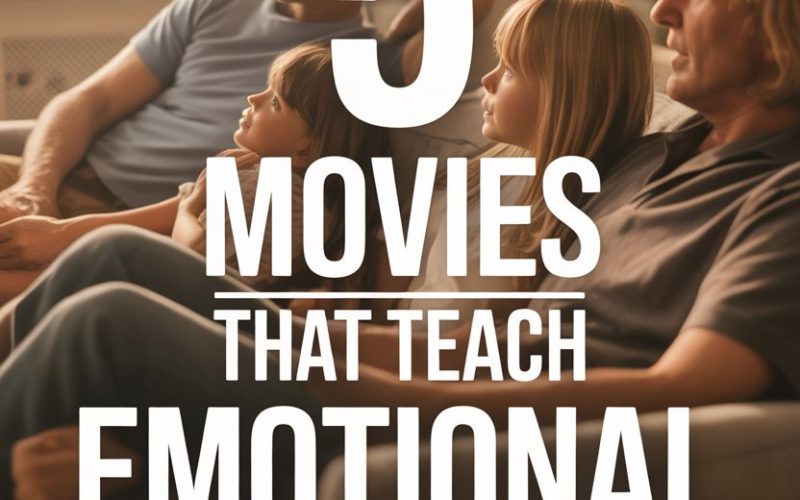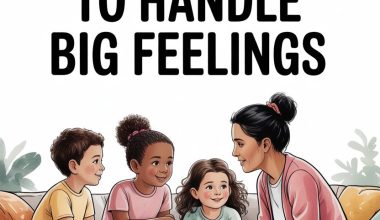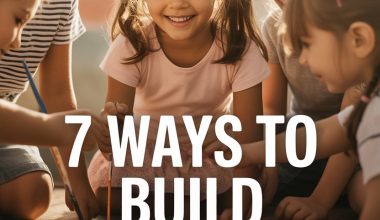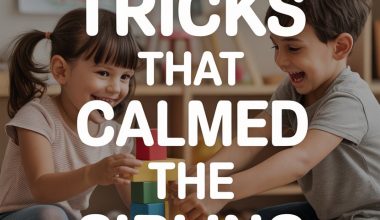Busy parents have precious little time for workshops or thick parenting books on empathy—wouldn’t it be grand if the family movie night could pull double duty?
Thankfully, the right films can spark important conversations, encourage kids to open up, and build emotional skills (all while you squeeze in a bowl of popcorn and maybe a sneaky nap).
If you want emotional intelligence without lectures or guilt trips, these five movies are your secret weapon.
1. Inside Out: Feelings Have Feelings Too
Pixar really does know how to get both kids and adults blubbering into their popcorn. Inside Out isn’t just a visual treat, it’s a masterclass for children in recognizing and naming emotions.
The story unfolds inside the mind of Riley, a young girl whose family moves to a new city. The starring cast? Her emotions—Joy, Sadness, Fear, Anger, and Disgust—each personified and hilariously relatable.
What makes this film so valuable for emotional intelligence is its unapologetic celebration of every feeling—yes, even the “messy” ones.
Fancy a psychologist’s take? Harvard’s Center on the Developing Child explains that when kids learn to identify their emotions early, they’re better equipped to handle life’s curveballs later.
Try this after the credits: ask your child which emotion was running the show for them today. Don’t be surprised when “Disgust” gets a mention around broccoli time.
2. The Lion King: Courage, Loss, and the Circle of Life
The Lion King offers a cocktail of heart-pounding adventure, catchy tunes, and some rather heavy themes.
Simba’s journey isn’t just about taking his place on Pride Rock—it’s about confronting loss, facing responsibility, and forgiving yourself.
For many children, Mufasa’s death is their first cinematic encounter with grief. (For many adults, too. No judgment.)
Here’s where emotional intelligence comes in: Simba wrestles with guilt, shame, and loneliness, then finds the courage to talk about his feelings and seek support.
According to Dr. John Gottman’s research, kids who learn to talk about difficult emotions are more resilient and less likely to bottle things up.
After watching, invite your child to talk about a time they felt scared or sad, and remind them it’s okay to talk through tough stuff—even if they’d rather adopt “Hakuna Matata” as their life philosophy.
3. Wonder: Kindness Is Contagious
Wonder tells the story of Auggie, a boy with facial differences navigating his first year at mainstream school.
Facing stares, whispers, and exclusion, Auggie’s courage—and the kindness of classmates who choose empathy over cruelty—shines a light on social-emotional learning.
Not every child will face Auggie’s specific challenges, but every child knows what it feels like to be left out (or to be the one who does the excluding).
Researchers like Daniel Goleman point out that empathy is at the heart of emotional intelligence.
Watching Auggie’s classmates learn to move beyond first impressions and reach out can spark rich conversations about inclusion, compassion, and the power of small acts.
You might try pausing the film when a character makes a difficult choice and ask, “What would you do?” It’s amazing how much children will share when they’re given space and a good story as a springboard.
4. Paddington 2: The Power of Politeness and Perspective
Yes, a marmalade-loving bear in a duffle coat can teach a masterclass in EQ. Paddington 2 is a warm hug of a film, brimming with gentle humour and a strong message: kindness matters, even (especially) when people are difficult.
Paddington’s unwavering optimism and empathy for everyone—from grumpy neighbours to hard-nosed prison guards—shows children that perspective-taking and politeness can transform a whole community.
A study by the Jubilee Centre for Character and Virtues found that films brimming with moral lessons (like Paddington 2) genuinely help children pick up values like honesty and compassion.
While watching, point out how Paddington listens, tries to see every side, and apologizes when he makes mistakes.
It’s also the perfect excuse to start a family “compliment train” at dinner—just try not to get stuck on “You’re as polite as a Peruvian bear.”
5. Inside the Mind of Matilda: Standing Up for Yourself and Others
Roald Dahl’s Matilda is a classic for a reason.
Matilda’s genius-level smarts are fun, but her real superpower is her courage to stand up against injustice and her compassion for friends who need help.
Miss Trunchbull’s reign of terror is the stuff of schoolyard nightmares, but Matilda’s journey teaches children about setting boundaries, finding their voice, and helping others who may not feel able to speak up.
Dr. Susan David’s work on emotional agility highlights that kids who learn to process complex feelings and advocate for themselves are more confident and connected.
Matilda’s story shows children that it’s possible to be brave and kind at the same time—a lesson that can stick long after the credits roll.
After movie night, encourage your child to talk about a time they stood up for themselves or a friend. Maybe they’re not ready to levitate chalk or send chocolate cake flying, but even small acts of “Matilda-style” courage count.
Popcorn, Pillows, and Emotional Wins
Family movie night has always been about togetherness, shared laughs, and, occasionally, arguing over subtitles.
With the right films, it’s also a golden opportunity to raise emotionally intelligent kids—without adding another task to your already overloaded to-do list.
The trick? Keep the conversation going.
Ask questions, notice the way characters handle their feelings, and model your own “grown-up” version of empathy (even when a certain someone leaves sticky fingerprints on the remote).
And if you find yourself tearing up during Inside Out or humming “Circle of Life” in the shower? Congratulations.
You’re not just surviving parenthood. You’re nailing it.




